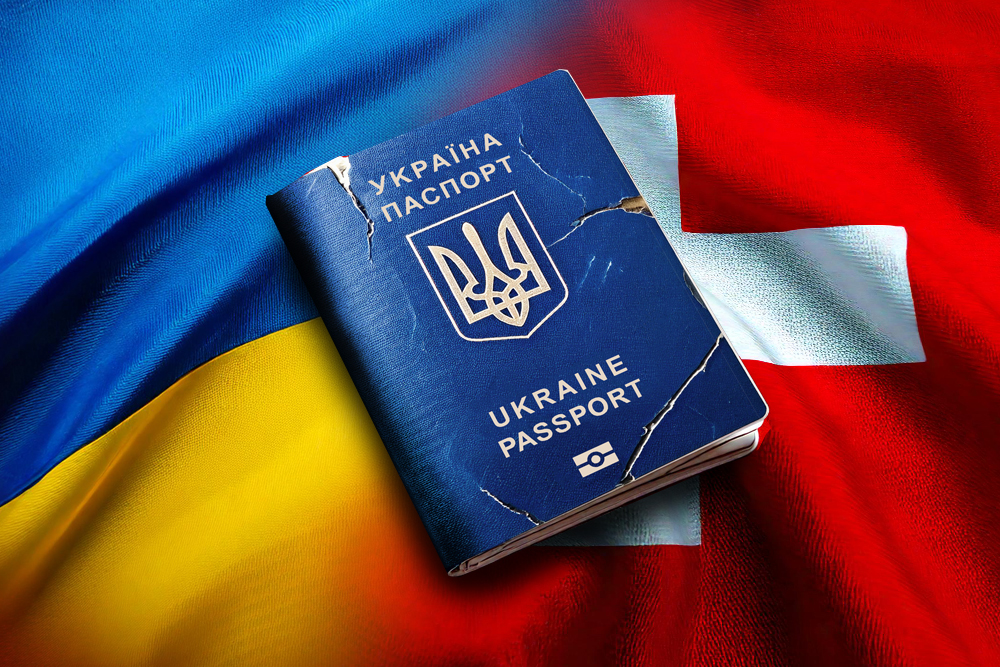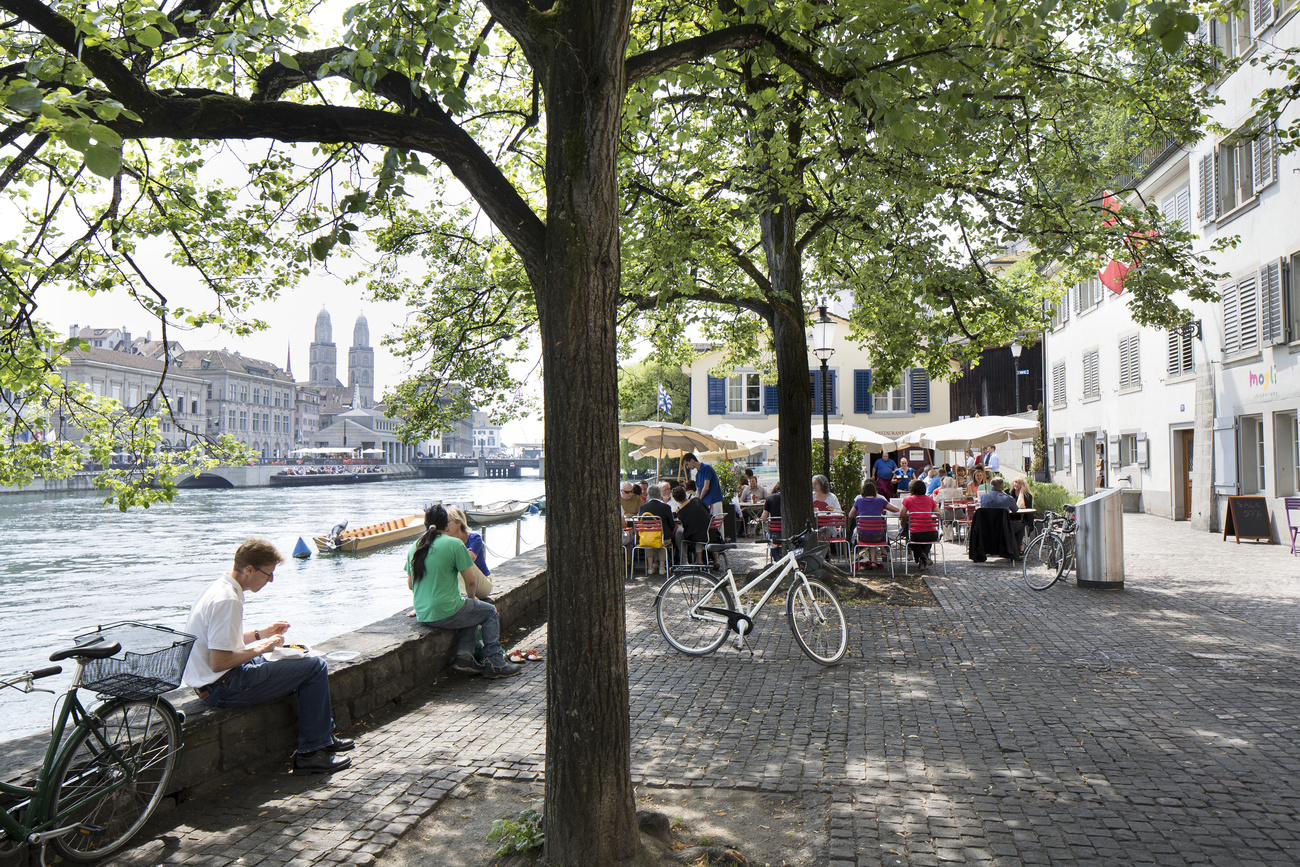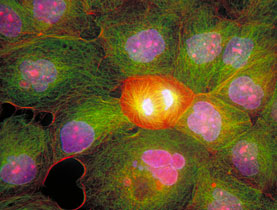Cancer vaccine plan launched amid controversy

Switzerland has become the latest country to offer pre-teen girls jabs against a virus that can lead to cervical cancer.
Health authorities say that vaccinating girls against human papilloma virus, or HPV, will help reduce cases of the cancer. But objections have been raised about the high costs and the effectiveness of the medication.
The huge campaign, launched to coincide with the start of the school year, involves the Federal Health Office, the cantons, health insurers and doctors.
It is aimed at all girls between the ages of 11 and 14 and could later include those aged 15 to 19.
Less potent strains of HPV can cause warts. A deadlier variety causes 2,000 women in Switzerland each year to develop the preliminary stages of cervical cancer. About 160 of them get the disease and 50 die. The cancer can remain undetected for years.
According to Thomas Zeltner, head of the Federal Health Office, the total cost of the vaccination programme is estimated to be SFr100-120 million ($89.5-$49.3 million) over the next three years.
The costs should, however, decrease after the introductory phase, he told reporters at a news conference on Monday.
The cantons, which are in charge of local health matters in Switzerland, are paying for the preventative jabs, but will be reimbursed by health insurers.
Expensive vaccine
“There has never been such an expensive vaccine on the market,” said Patrizia Pesenti, from the Swiss Conference of the Cantonal Ministers of Public Health.
It costs – with a discount – SFr144 per dose. This is far below the SFr236 per dose price tag in pharmacies, but way above the SFr9-SFr47 cost for tetanus, polio or hepatitis injections. On top of the SFr144 comes a SFr15 doctor’s fee.
The high price of Gardasil, the anti-HPV vaccine produced by the American pharmaceutical giant Merck, has already come under fire.
But the Swiss authorities maintain that the cost/benefit ratio is a positive one. Cervical cancer is currently the 14th most common cancer among women in Switzerland, said Zeltner. Among women under 50 it rises to fourth place.
Around 75 per cent of these cancers were caused by the HPV virus.
Officials added that the vaccination programmes not only offered protection to a maximum of girls, but also gave them equal access to the vaccine.
However, the injection does not offer complete protection – as in a quarter of cases the cancer is not caused by the virus. Smear tests are still paramount, warn officials, as early detection of the disease is vital.
Effectiveness in doubt?
The vaccination campaign has been mounted very quickly – the vaccine was only approved by the Swiss authorities in 2006. But for some in the health profession, it has come too fast.
The Medical Group for Reflection on Vaccinations, an association of doctors in French-speaking Switzerland, believes that the newness of the vaccine means that there has not been enough time to consider its effectiveness and possible side effects.
Currently the vaccine is estimated to protect girls for five to ten years.
“One of the potential risks of vaccination on a large scale could be to put off infection until a later age,” it warned in a communiqué.
The Forum for Praxis Paediatrics, an association of children’s doctors, is in favour of the move. But does not agree with mass immunisation, arguing that vaccinations could be carried out in doctors’ practices with individual advice.
For some the move does not go far enough. The Swiss Cancer League wants to see a tumour register for the whole of Switzerland to allow a proper analysis of data.
“We maintain that the vaccine is effective and safe,” Virginie Masserey, head of the vaccination section at the Federal Health Office, told swissinfo.
Millions of girls have already been vaccinated around the world, she added. Among the countries who have already acted are Australia and Swiss neighbour Germany.
In addition, the high vaccine prices paid in industrialised countries help reduce the costs in developing ones, where there is a higher incidence of cervical cancer deaths and cases, said Masserey.
“It’s also a real act of solidarity,” she said.
swissinfo, based on an article in Italian by Sonia Fenazzi
Cervical cancer develops from cells lining the neck of the womb (cervix). Usually, these cells first develop abnormal changes, which then become cancerous.
Most cases of the cancer are caused by the human papilloma virus, or HPV. A smaller number of cases are caused by other sexually transmitted diseases such as Chlamydia and herpes.
Other factors are insufficient hygiene, number of sexual partners and tobacco.
More than 100 types of the human papilloma virus, or HPV, exist. Each has been given a number.
HPV is transmitted sexually or more rarely, through direct contact on the skin. An estimated 70 to 80 per cent of the population in Switzerland will become infected at some time in their lives.
One woman in five infected with certain types of HPV will develop a precancerous
condition or cancer.
Vaccination provides protection against most of the cancer-causing types of HPV and is recommended for girls aged 11 years and older.
The vaccine is given by injection into the arm, with a course of three doses required to ensure effective protection.

In compliance with the JTI standards
More: SWI swissinfo.ch certified by the Journalism Trust Initiative











You can find an overview of ongoing debates with our journalists here . Please join us!
If you want to start a conversation about a topic raised in this article or want to report factual errors, email us at english@swissinfo.ch.